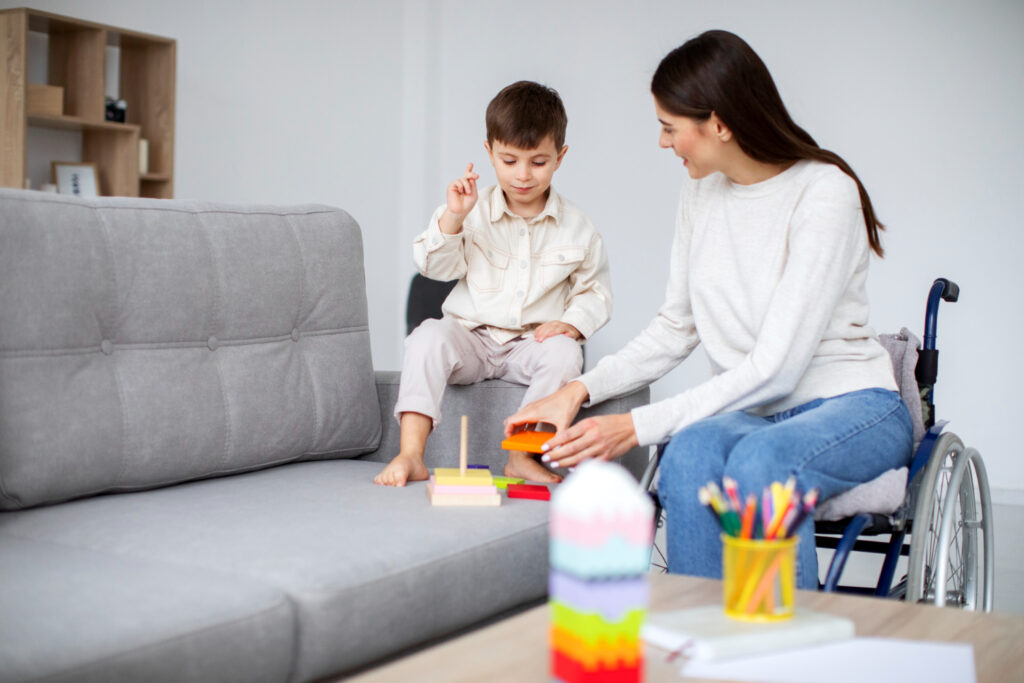Parenting a child with Autism Spectrum Disorder (ASD) comes with unique challenges, but with the right strategies and support, you can create a nurturing and empowering environment for your child at home. At HOPE Centre for Autism, we are dedicated to helping families navigate the complexities of autism, offering guidance, resources, and personalized care to meet your child’s needs.
Understanding Your Child’s Needs
Children with autism often have distinct needs and preferences, which can vary widely depending on where they fall on the spectrum. Understanding these needs is the first step in providing effective support at home. Here are some key areas to focus on:
- Communication: Many children with autism struggle with communication, whether it’s verbal or nonverbal. To support your child:
- Use clear and simple language: Avoid complex instructions. Break down tasks into manageable steps.
- Incorporate visual aids: Visual schedules, charts, and picture cards can help your child understand daily routines and expectations.
- Encourage alternative communication methods: If verbal communication is difficult, explore options like sign language, picture exchange systems, or communication apps.
- Creating a Structured Environment: Children with autism often thrive in environments that are predictable and well-structured.
- Establish a consistent routine: Regular schedules provide a sense of security. Try to keep mealtimes, bedtimes, and other daily activities consistent.
- Prepare for transitions: Transitions between activities can be challenging. Use visual timers or provide advance notice to help your child adjust to changes.
- Sensory Needs: Sensory processing issues are common in children with autism. Your child might be sensitive to certain lights, sounds, textures, or smells.
- Create a sensory-friendly space: Designate a calm area in your home where your child can retreat when they feel overwhelmed. Include items like noise-canceling headphones, soft blankets, or sensory toys.
- Incorporate sensory activities: Depending on your child’s needs, activities like swinging, playing with clay, or engaging in water play can be calming and help with sensory regulation.
Supporting Social and Emotional Development
Social interactions can be difficult for children with autism, but there are ways to support their development in this area:
- Encourage Social Interaction: While socializing can be challenging, it’s important to provide opportunities for your child to interact with others.
- Start with small, controlled settings: Begin with one-on-one playdates or family gatherings before moving to larger social events.
- Model social behavior: Demonstrate appropriate social interactions, such as taking turns, making eye contact, and using polite language.
- Use Positive Reinforcement: Rewarding positive behaviors can encourage your child to repeat them.
- Offer praise and rewards: Reinforce good behavior with verbal praise, a favorite activity, or a small treat.
- Set achievable goals: Break down larger tasks into smaller steps, and celebrate your child’s successes along the way.
- Teach Coping Skills: Help your child develop strategies to manage stress and anxiety.
- Practice relaxation techniques: Breathing exercises, counting, or using a calm-down jar can help your child manage emotions.
- Develop a “calm-down” plan: Work with your child to identify what helps them feel better when they are upset, and practice these strategies regularly.
Involving the Whole Family
Supporting a child with autism is a family effort. Here are ways to involve the entire family in creating a supportive environment:
- Educate Siblings: Siblings may need guidance in understanding their brother or sister’s unique needs. Teach them about autism in an age-appropriate way and encourage them to be supportive.
- Share Responsibilities: Encourage all family members to participate in the child’s routine and care. This can help distribute the caregiving load and foster a sense of teamwork.
- Seek Professional Support: Working with professionals, such as those at HOPE Centre for Autism, can provide your family with strategies tailored to your child’s needs.
The Role of HOPE Centre for Autism
At HOPE Centre for Autism, we believe that with the right support, every child with autism can reach their full potential. Our services are designed to empower families with the tools they need to create a positive and supportive home environment. We offer:
- Personalized care plans: Tailored to meet your child’s unique needs and challenges.
- Parent training programs: To help you implement effective strategies at home.
- Therapeutic services: Including speech therapy, occupational therapy, and behavioral interventions.
Conclusion
Supporting your child with autism at home requires patience, understanding, and a commitment to creating a structured, nurturing environment. With the right strategies, you can help your child navigate the world and build the skills they need to thrive. At HOPE Centre for Autism, we are here to support you every step of the way. Together, we can make a meaningful difference in your child’s life.
For more information on how we can help, or to schedule a consultation, contact HOPE Centre for Autism today.
